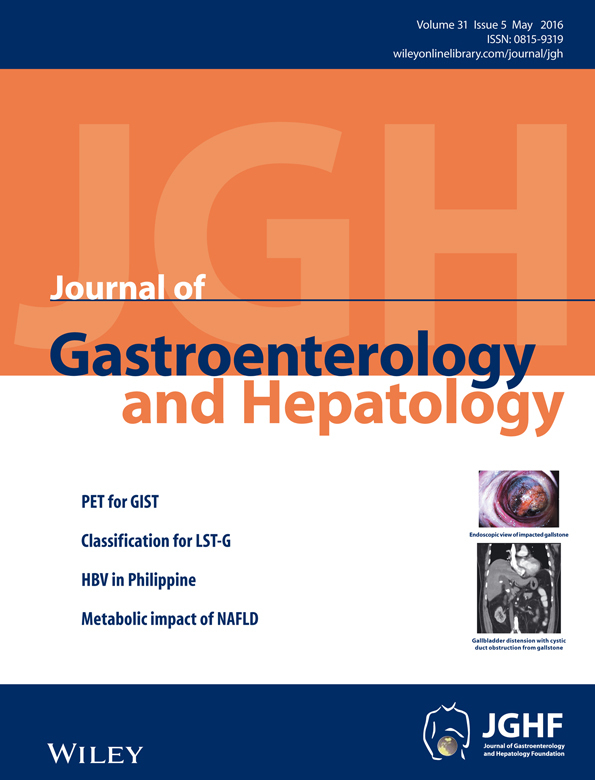α-fetoprotein levels after interferon therapy predict regression of liver fibrosis in patients with sustained virological response
Abstract
Background and Aims:
Eradicating chronic hepatitis C virus (HCV) infection improves liver fibrosis and reduces hepatocellular carcinoma (HCC) incidence in chronic HCV patients. We evaluated the relationship between fibrosis regression, as assessed by sequential biopsies, and clinical factors of patients with sustained virological response (SVR).
Methods:
We retrospectively enrolled 130 patients (74 men; 60.1 ± 8.1 years) with chronic HCV treated with interferon and ribavirin therapy who achieved SVR. To evaluate the change in fibrosis stage over time, all patients underwent a pre-therapy initial biopsy and a second biopsy after achieving SVR.
Results:
The mean time between biopsies was 5.5 ± 1.2 years. Fibrosis stage regressed in 55 patients (42.3%), remained stable in 69 (53.1%), and progressed in 6 (4.6%). The mean fibrosis stage significantly decreased, from 2.01 ± 0.99 units to 1.61 ± 1.24 units (P < 0.001). Aspartate aminotransferase, γ-glutamyltransferase, and α-fetoprotein (AFP) levels at 24 weeks after the end of treatment (EOT) were significantly lower, and the platelet count at 24 weeks after the EOT was significantly higher in patients with fibrosis regression than in those without. Logistic regression analysis confirmed that lower AFP levels (< 5.4 ng/mL) at 24 weeks after the EOT (odds ratio [OR], 4.626; 95% confidence interval [CI], 1.557–13.153; P = 0.006) and HCV genotype 2 (OR, 2.198; 95% CI, 1.010–4.786; P = 0.047) were significant independent predictive factors for regressed fibrosis after SVR.
Conclusions:
Lower post-treatment AFP levels and HCV genotype 2 significantly correlated with liver fibrosis regression after SVR.




